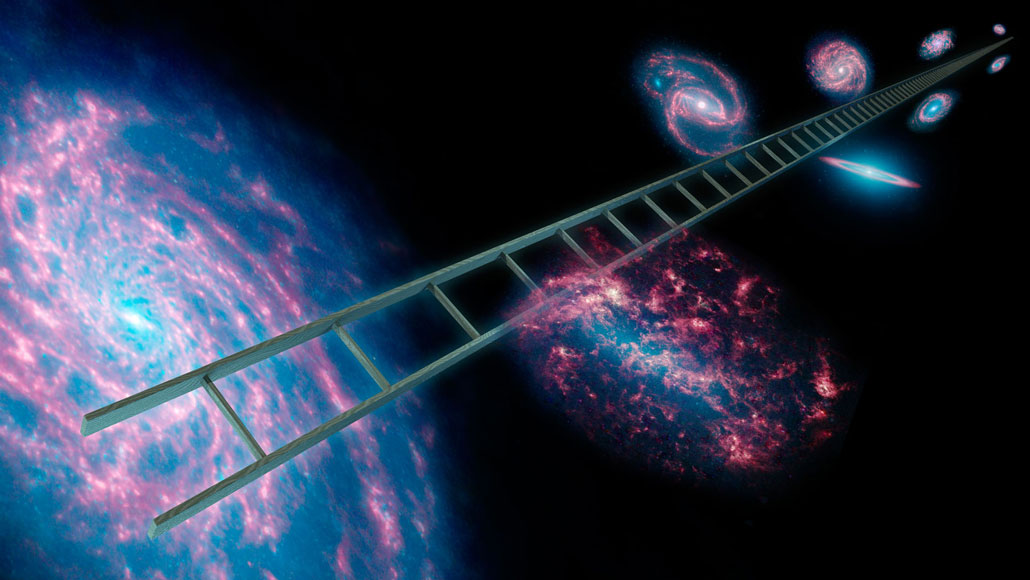- A novel approach to addressing a significant cosmological topic has been developed by researchers from India and the US.
- How quickly is the universe expanding? is the question.

The Universe’s History
- The Big Bang, a tremendous explosion that created the universe, occurred roughly 13.8 billion years ago.
- The universe expanded over time, occasionally speeding up and occasionally slowing down.
- In order to grasp what is happening in the cosmos, scientists strive to comprehend this expansion.
The Hubble Constant: A Serious Issue
- The Hubble constant is a unique quantity that indicates the rate of expansion of the cosmos.
- Scientist Edwin Hubble made the first mention of this number in 1929.
- However, scientists today are still unsure of its worth.
Important Parameters to Measure
- We must carefully measure two things in order to determine the Hubble constant.
- how far away objects are from us in space.
- How quickly the universe is expanding, making these things move farther and farther away from us.
Invention vs. Tradition
- The Hubble constant has so far been measured by a few different techniques by scientists:
- Observing the supernovae, or bright explosions in space.
- Utilising unique illumination from the early universe.
- Examining the waves left behind by large space collisions.
- But now, researchers from India have proposed a novel approach: measuring with a technique known as “gravitational lensing.”
Using gravitational lensing: a novel method
- Similar to utilising gravity to bend light, gravitational lensing. Think of it as a magnifying glass in outer space.
- This notion dates back a long time, but it has lately improved.
- The Hubble constant may be measured using this lensing technique, according to scientists.
- They are interested in studying how gravity bends the waves produced by space encounters.
- The speed at which the cosmos is expanding may be revealed by these bent waves.
- The Key Concept: A Time-Space Bridge
- This novel concept is intriguing since it links several eras in the evolution of the universe.
- It might provide a solid response about the Hubble constant.
Challenges
- While this concept is interesting, there are significant problems to be resolved:
- Ensuring that the signals are sufficiently distinct to measure.
- Using the new approach to address additional queries.
- If this new approach is successful, it might aid in our understanding of dark matter and other facets of the cosmos.
Source: https://www.science.org/content/article/recharged-debate-over-speed-expansion-universe-could-lead-new-physics
